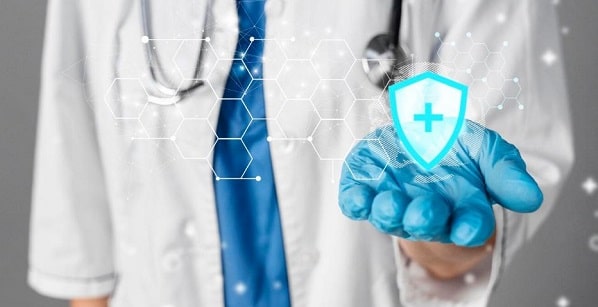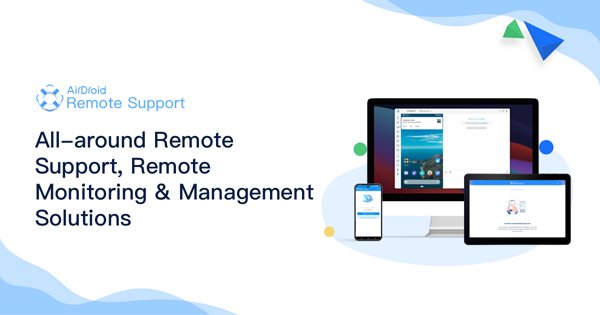Everything You Want to Know about Privacy in Healthcare
Privacy is a fundamental right that everyone has, especially when it comes to their personal and sensitive information. In the healthcare sector, privacy is crucial for protecting the confidentiality, virtue, and availability of patient data and ensuring the trust and safety of patients and healthcare providers.
However, privacy in healthcare is also facing many challenges and risks, such as data breaches, cyberattacks, identity theft, fraud, and data misuse. Therefore, it is important to understand the risks to privacy in healthcare and how to protect patient privacy in healthcare.
What Is Privacy in Healthcare
Privacy in healthcare refers to the right of patients to control who can access, use, and share their personal health information (PHI), which includes any information that can identify them or relate to their health condition, diagnosis, treatment, or payment. It implies the obligation of healthcare providers and organizations to protect patient data from unauthorized access, disclosure, modification, or destruction and to comply with relevant laws and regulations.
Related Regulations in Healthcare:
- HIPAA(Health Insurance Portability and Accountability Act): This act modernizes the flow of healthcare information and provides for the protection of personally identifiable information in the healthcare and health insurance industries.
- HITECH(Health Information Technology for Economic and Clinical Health Act): This act creates a national electronic health record network and promotes and expands the adoption of health information technology.
- GDPR(General Data Protection Regulation): This regulation aims to protect the fundamental human right to personal data and privacy. Under the GDPR, access to medical data is subject to the patient's consent.

Privacy in healthcare is essential for several reasons:
- First, it protects the dignity and autonomy of patients, who may not want to reveal their sensitive or stigmatized health issues to others.
- Second, it fosters the quality and effectiveness of healthcare, as patients are more likely to seek care, disclose information, and adhere to treatment if they trust their providers and feel secure about their data.
- Third, it prevents potential harm and damages from data breaches or misuse, such as identity theft, fraud, discrimination, blackmail, harassment, or physical harm.
However, healthcare privacy faces many challenges and risks, especially in the digital age. With the increasing usage of electronic health records (EHRs), mobile devices, cloud computing, big data, artificial intelligence, and telehealth, patient data is more accessible, portable, and valuable than ever. This also means that patient data is more vulnerable to cyberattacks, hacking, phishing, malware, ransomware, or human errors.
How to Safeguard Patient Privacy in Healthcare
There are different measures and best practices that can be taken to safeguard patient privacy in healthcare, such as:
Train Healthcare Professionals on Privacy Protection
One of the most important and effective ways to safeguard patient privacy in healthcare is to train healthcare professionals on privacy protection, policies, and procedures. Healthcare professionals should be aware of the types and sources of patient data, the risks and consequences of data breaches or misuse, the laws and regulations that apply to patient data, and the roles and responsibilities of each employee in protecting patient data.
In addition, healthcare professionals should be trained to handle, store, transmit, and dispose of patient data securely, detect and report any suspicious or unauthorized activity, and respond to any privacy incidents or requests.

Compliance with Healthcare Regulations
Another essential way to safeguard patient privacy in healthcare is to comply with the relevant laws and regulations that govern patient data, such as HIPAA, HITECH, GDPR, or other local or state laws. Compliance with healthcare regulations ensures the legal and ethical protection of patient data and avoids the potential penalties, fines, lawsuits, or reputational damages that may result from violations.
Compliance with healthcare regulations may involve conducting regular privacy and security assessments, audits, and reviews, implementing and updating privacy and security policies and procedures, obtaining and maintaining patient consent and authorization, and providing privacy notices and disclosures to patients and other parties.
Protect Electronic Health Information with Encrypted Storage
Protecting electronic health information (EHI) with encrypted storage is a crucial safeguard for patient privacy in healthcare. Encryption is a process that transforms data into an indistinct form using a secret key or algorithm that can only be decrypted by authorized parties who have the corresponding key or algorithm. It can prevent unauthorized access, use, or disclosure of EHI, even if the data is lost, stolen, or intercepted.
Encryption can be applied to EHI at different levels, such as at rest, in transit, or use, and using various methods, such as symmetric, asymmetric, or hybrid encryption. Encryption can also be combined with other security measures, such as authentication, authorization, firewall, antivirus, etc.

Authorize Specific Persons to Access Confidential Data
Another way to safeguard patient privacy in healthcare is to authorize specific persons to access confidential data and to limit access to the minimum necessary for the intended purpose. Authorization is a process that grants or denies permission to access, use, or share confidential data based on the identity, role, or function of the requester and the nature, scope, or context of the request.
Authorization can prevent unauthorized or unnecessary access, use, or disclosure of confidential data and can track and monitor the activity and behaviour of the authorized parties. It can be implemented using different mechanisms, such as passwords, tokens, biometrics, certificates, etc.
Conduct Regular Security Risk Analysis
A further way to safeguard patient privacy in healthcare is to conduct regular security risk analysis, which is a process that identifies, assesses, and mitigates potential threats. Vulnerabilities that may impact the confidentiality, integrity, and availability of EHI.
Security risk analysis can help identify the sources and levels of risk, such as natural disasters, human errors, malicious attacks, system failures, etc., and the potential impacts and consequences of risk, such as data loss, corruption, data breach, data misuse, etc.

Retention Copies and Data Backups
Another way to safeguard patient privacy in healthcare is to retain copies and backups of EHI, which are duplicate or alternative versions of EHI that can be used to restore or recover the original EHI in case of data loss, corruption, data breach, or data disaster.
Retention copies and data backups can ensure the availability and continuity of EHI and prevent the loss of valuable or irreplaceable data. Retention copies and data backups can be stored in different locations, formats, or media, such as cloud, hard drive, tape, etc. They can be encrypted, compressed, or verified for security and integrity.
Establish a Penalty System for Violation of Privacy Policy
A final way to safeguard patient privacy in healthcare is to establish a penalty system for violating privacy policy, which is a set of rules and guidelines defining the expectations, responsibilities, and consequences of handling patient data in a healthcare organization.
A penalty system for privacy policy violations can deter and prevent the intentional or unintentional misuse or abuse of patient data. It can hold the violators accountable and liable for their actions. A penalty system for violation of privacy policy can include different types and levels of sanctions, such as warnings, fines, suspensions, terminations, lawsuits, etc., depending on the severity and frequency of the violation.
The Importance of Privacy in Healthcare
Patient privacy in healthcare is not only a right and an obligation but also a benefit and an opportunity for both patients and healthcare providers. Patient privacy in healthcare is essential for several reasons, such as:
Preventing Data Breaches and Cyber Threats
Data breaches and cyber threats can compromise the integrity and availability of patient data and can result in identity theft, fraud, discrimination, blackmail, harassment, or physical harm. Patient privacy in healthcare can prevent data breaches and cyber threats by implementing security measures and controls, such as encryption, authentication, authorization, firewall, antivirus, etc., and by complying with privacy laws and regulations, such as HIPAA, HITECH, GDPR, etc.

Avoiding Penalties for Violations
Penalties for violations can include fines, lawsuits, audits, investigations, sanctions, reputational damages, or loss of trust or business. Patient privacy in healthcare can avoid penalties for violations by adhering to privacy policies and procedures, obtaining and maintaining patient consent and authorization, providing privacy notices and disclosures, and conducting regular privacy and security assessments, audits, and reviews.
Building Trust with Patients
Patient privacy in healthcare can build trust with patients, which is the confidence and belief that patients have in their healthcare providers and healthcare organizations regarding protecting and using their data. Trust is essential for the quality and effectiveness of healthcare, as it influences the patient-provider relationship, patient satisfaction and loyalty, and patient engagement and participation.
New Trends in Healthcare: How Telehealth Ensures Privacy
Telehealth is a new trend in healthcare that permits patients to accept healthcare services remotely and communicate with their healthcare provider through various online access, such as phone, email, video, chat, etc. Telehealth can offer many benefits for patients and healthcare providers, such as convenience, accessibility, affordability, efficiency, and quality.
However, telehealth can also pose privacy challenges, as it involves transmitting and storing patient data over the internet, which may be exposed to hackers, eavesdroppers, or interceptors. Therefore, telehealth must ensure privacy by adopting secure and compliant solutions, such as remote support software.
AirDroid Remote Support Provides Security for Telehealth
One example of remote support software is AirDroid Remote Support. It can help healthcare providers protect patient privacy, as it uses end-to-end encryption, secure authentication, and data deletion to prevent unauthorized or accidental access, use, or disclosure of patient data.

AirDroid Remote Support provides secure access to patient data from healthcare organizations through end-to-end encryption and multi-level specific data protection mechanisms. In addition, the software has a file transfer feature that facilitates quick transfer of file data within the organization. And healthcare professionals can remotely view patient data on hospital equipment. What's more, it has a live chat feature that allows you to chat via text message and voice call.
Final Thoughts
Privacy in healthcare is a vital right that safeguards patient dignity, autonomy, and trust. While facing challenges in the digital age, protecting sensitive information from cyber threats and breaches remains crucial. Safeguarding patient privacy requires employee training, encryption of electronic health information, compliance with rules, and regular security risk analysis.
Notably, emerging trends like telehealth require secure solutions, with AirDroid Remote Support exemplifying a tool that ensures privacy through encryption and specific communication channels.






Leave a Reply.